Standard Oil is the common name for a corporate trust in the petroleum industry that existed from 1882 to 1911. The origins of the trust lay in the operations of the Standard Oil Company (Ohio), which had been founded in 1870 by John D. Rockefeller. The trust was born on January 2, 1882, when a group of 41 investors signed the Standard Oil Trust Agreement, which pooled their securities of 40 companies into a single holding agency managed by nine trustees. The original trust was valued at $70 million. On March 21, 1892, the Standard Oil Trust was dissolved and its holdings were reorganized into 20 independent companies that formed an unofficial union referred to as "Standard Oil Interests." In 1899, the Standard Oil Company acquired the shares of the other 19 companies and became the holding company for the trust.
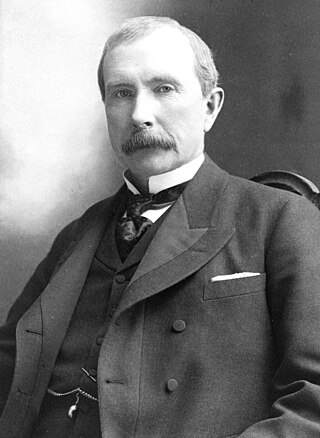
John Davison Rockefeller Sr. was an American industrialist and philanthropist. He was one of the wealthiest Americans of all time and one of the richest people in modern history. Rockefeller was born into a large family in Upstate New York who moved several times before eventually settling in Cleveland, Ohio. He became an assistant bookkeeper at age 16 and went into several business partnerships beginning at age 20, concentrating his business on oil refining. Rockefeller founded the Standard Oil Company in 1870. He ran it until 1897 and remained its largest shareholder. In his retirement, he focused his energy and wealth on philanthropy, especially regarding education, medicine, higher education, and modernizing the Southern United States.
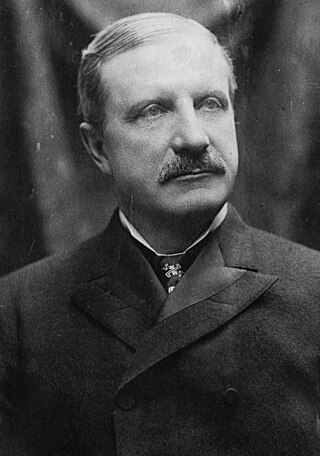
William Avery Rockefeller Jr. was an American businessman and financier. Rockefeller was a co-founder of Standard Oil along with his elder brother John Davison Rockefeller. He was also a part owner of Anaconda Copper, which was the fourth-largest company in the world by the late 1920s. Rockefeller started his business career as a clerk at 16. In 1867, he joined his brother's company, Rockefeller, Andrews & Flagler, which later became Standard Oil. The company was eventually split up by the Supreme Court in 1911. Rockefeller also had a significant involvement in the copper industry. In 1899, Rockefeller and Standard Oil principal Henry H. Rogers joined with Anaconda Company founder Marcus Daly to create the Amalgamated Copper Mining Company, which later returned to the name Anaconda Copper.
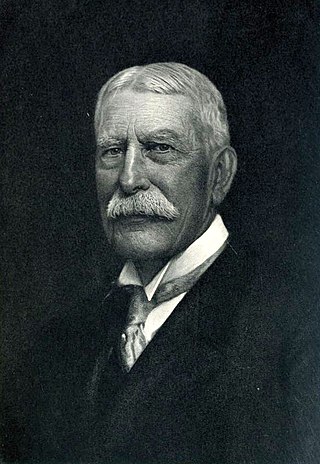
Henry Morrison Flagler was an American industrialist and a founder of Standard Oil, which was first based in Ohio. He was also a key figure in the development of the Atlantic coast of Florida and founder of the Florida East Coast Railway. He is also known as a co-founder and major investor of the cities of Miami and Palm Beach, Florida.

Henry Huttleston Rogers was an American industrialist and financier. He made his fortune in the oil refining business, becoming a leader at Standard Oil. He also played a major role in numerous corporations and business enterprises in the gas industry, copper, and railroads. He became a close friend of Mark Twain.
The Rockefeller family is an American industrial, political, and banking family that owns one of the world's largest fortunes. The fortune was made in the American petroleum industry during the late 19th and early 20th centuries by brothers John D. Rockefeller and William A. Rockefeller Jr., primarily through Standard Oil. The family had a long association with, and control of, Chase Manhattan Bank. By 1987, the Rockefellers were considered one of the most powerful families in American history.

Imperial Oil Limited is a Canadian petroleum company. It is Canada's second-largest integrated oil company. It is majority-owned by American oil company ExxonMobil, with a 69.6% ownership stake in the company. It is a producer of crude oil, diluted bitumen, and natural gas. Imperial Oil is one of Canada's major petroleum refiners and petrochemical producers. It supplies Esso-brand service stations.
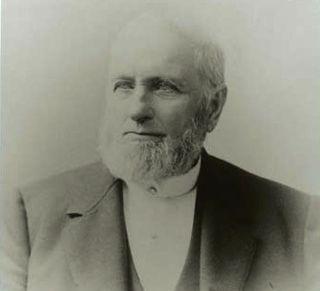
William Avery "Devil Bill" Rockefeller Sr. was an American businessman, lumberman, herbalist, salesman, and con artist who went by the alias of Dr. William Levingston. He worked as a lumberman and then a traveling salesman who identified himself as a "botanic physician" and sold elixirs. He was known to buy and sell horses, and was also known at one point to have bought a barge-load of salt in Syracuse. Land speculation was another type of his business, and the selling of elixirs served to keep him with cash and aided in his scouting of land deals. He loaned money to farmers at twelve percent, but tried to lend to farmers who could not pay so as to foreclose and take the farms. Two of his sons were Standard Oil co-founders John Davison Rockefeller Sr. and William Avery Rockefeller Jr.
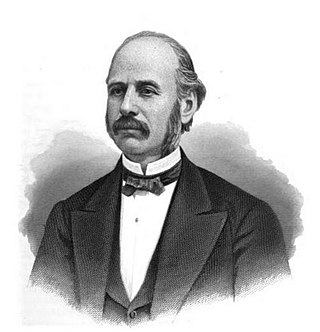
Amasa Stone, Jr. was an American industrialist who is best remembered for having created a regional railroad empire centered in the U.S. state of Ohio from 1860 to 1883. He gained fame in New England in the 1840s for building hundreds of bridges, most of them Howe truss bridges. After moving into railroad construction in 1848, Stone moved to Cleveland, Ohio, in 1850. Within four years he was a director of the Cleveland, Columbus and Cincinnati Railroad and the Cleveland, Painesville and Ashtabula Railroad. The latter merged with the Lake Shore and Michigan Southern Railway, of which Stone was appointed director. Stone was also a director or president of numerous railroads in Ohio, New York, Pennsylvania, Indiana, Illinois, Iowa, and Michigan.
Alta Rockefeller Prentice was an American philanthropist and socialite, daughter of Standard Oil co-founder John D. Rockefeller.

Feargus O'Conner Bowden Squire, often referred to as F. B. Squire, was an executive with the Standard Oil Company and former mayor of Wickliffe, Ohio. He is well known in the petroleum industry for introducing a number of innovations, such as the tanker truck and door-to-door delivery of refined oil, and for financing a breakthrough in the mining of sulfur.

Stephen Vanderburgh Harkness was an American businessman based in Cleveland, Ohio. He invested as a silent partner with John D. Rockefeller, Sr. in the founding of Standard Oil and served as a director of Standard Oil until his death.
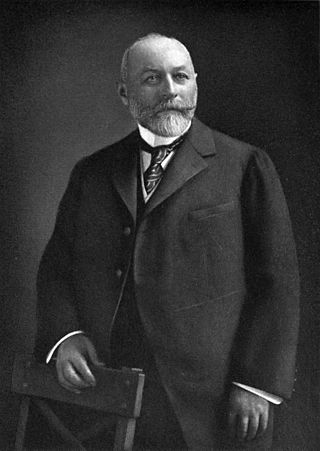
Herman Frasch [or Hermann Frasch] was a chemist, mining engineer and inventor known for his work with petroleum and sulfur.
John Wesley Van Dyke was president of the Atlantic Refining Company, Philadelphia, Pennsylvania, from 1911 until 1927. After the break-up of Standard Oil Trust, Van Dyke led the debt-ridden Atlantic Refining Company into expanded markets and sales of more than $131 million.

Laura Celestia "Cettie" Spelman Rockefeller was an American abolitionist, philanthropist, school teacher, and prominent member of the Rockefeller family. Her husband was Standard Oil co-founder John D. Rockefeller. Spelman College in Atlanta, Georgia, and the Laura Spelman Rockefeller Memorial were named for her.

Lamon Vanderburgh Harkness was an American businessman and one of the largest stockholders in Standard Oil. Lamon V. Harkness became involved with Standard Oil through his father Stephen V. Harkness, who was a primary silent investor in the formation of Standard Oil.

Louis Henry Severance was an American oilman and philanthropist who was a founding member of the Standard Oil Trust, the first treasurer of Standard Oil, and a sulfur magnate.
Maurice B. Clark (1827–1901) was a partner in a produce business with John D. Rockefeller Sr., along with Clark's two brothers, James and Richard. Clark was from Malmesbury, England and moved to the United States in 1847. He studied with Rockefeller at Folsom's Commercial College in Ohio.

The Union Sulphur Company was an American sulfur mining corporation founded in 1896 by the famous inventor Herman Frasch. It utilized the Frasch Process to extract previously inaccessible sulfur deposits located beneath swampland in Louisiana. The Union Sulphur Company dominated the world sulfur market until its patents expired in 1908. Its success led to the development of the present-day city of Sulphur, Louisiana. After its sulfur patents expired, the company transitioned into oil and natural gas production and was renamed the Union Sulphur & Oil Company and later the Union Oil & Gas Corporation.
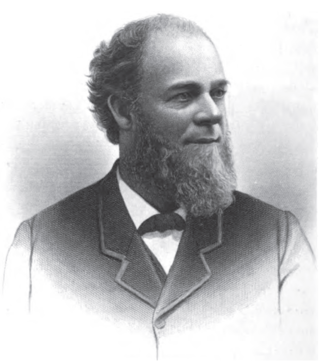
George W. Gardner (1834–1911) was a grain dealer and the 28th and 30th Mayor of Cleveland, serving two terms as a Republican. He was also co-proprietor with John D. Rockefeller and Maurice B. Clark of the firm Clark, Gardner & Company, later Clark & Rockefeller, commission merchants. They were the largest grain dealers in Cleveland before Rockefeller went on with Clark in the oil industry.















